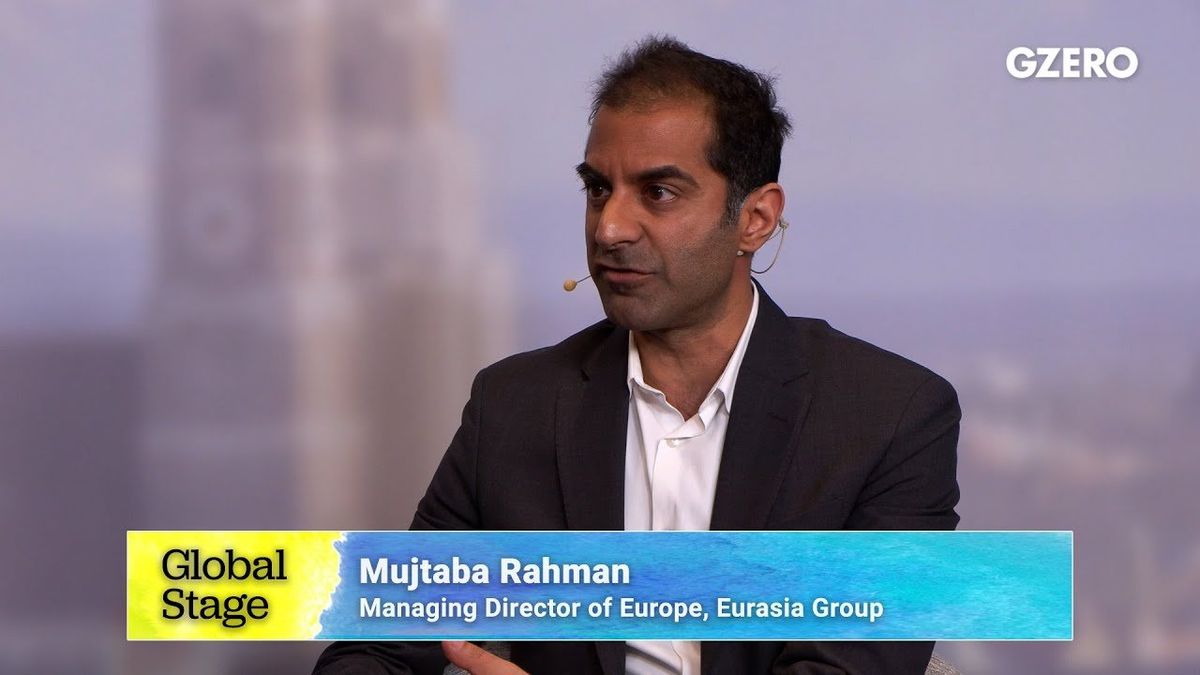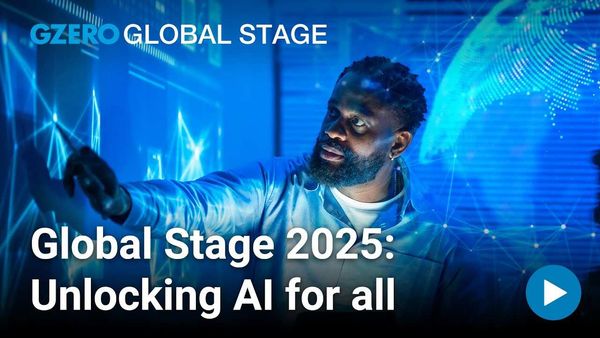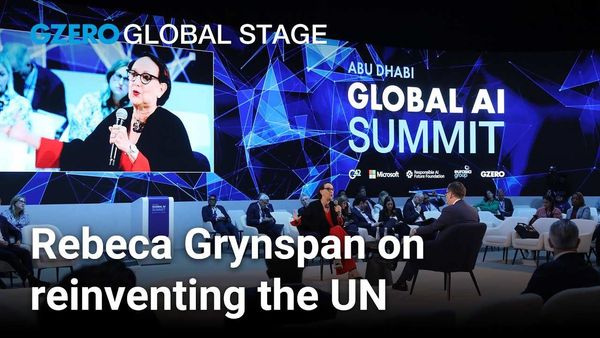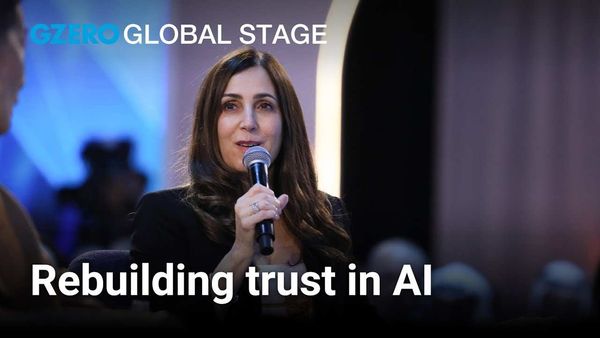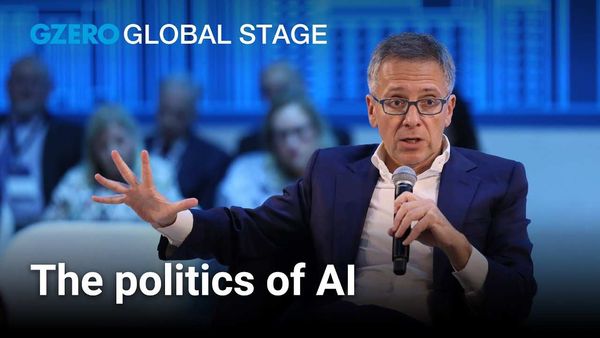While there are many security risks and global challenges on the agenda at this year’s Munich Security Conference, none have dominated the dialogue more than Ukraine as the war there enters a second year with no clear end in sight. From mainstage speeches to a giant banner hanging across the street from the conference venue that reads, “Ukraine Is You,” unity among Western allies is the clear message.
While there’s truth to that overall, there are many nuances and differences in approach from country to country—Estonia, for example, taking a much more absolutist stance against Vladimir Putin even as France’s President Emmanuel Macron begins to talk about Europe’s relationship with Russia after the war is over.
GZERO Media is on the ground in Munich to cover the conference at this critical moment for Europe and the world, and Chief Content Officer Tony Maciulis caught up with our colleague Mij Rahman, Managing Director for Europe at Eurasia Group, to break down some of the big stories of the day.
The two talked about European unity, the ongoing impact of Brexit, and who, if anyone, is emerging as a clear leader for the EU overall.


